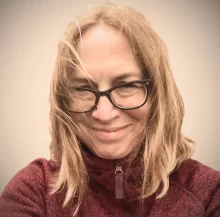I was fascinated by Wendy Dossett’s interview with my colleague Wulf Livingston, in particular the discussions around the 12-Step Fellowship. Her research has provided some important insights into the 12-Step Fellowship. The film below follows on from an earlier one of Wendy’s that I have posted, The Nature of Addiction, where she describes acknowledging her own powerlessness over her addiction.
Wendy describes powerlessness as being a central concept in 12-step fellowships such as Alcoholics Anonymous (AA). It is argued that if control of substance use is beyond your own willpower, then there has to be some other power that is going to bring about abstinence. For example, step 1 states ‘We admitted we were powerless over alcohol…’, whilst step 2 states ‘Came to believe that a Power greater than ourselves could restore us to sanity.’

 I am really pleased to introduce the fourth of our Recovery Voices,
I am really pleased to introduce the fourth of our Recovery Voices, 

